

| the Pied Piper of Hamelin |
About the roots of Climate Activism
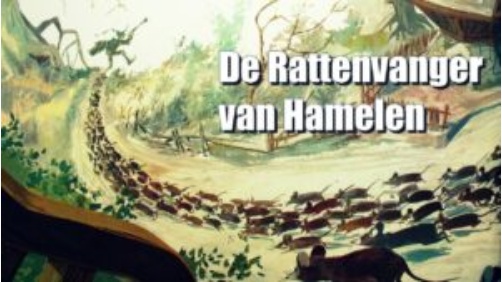 This folktale was chronicled by the Grimm brothers.
This folktale was chronicled by the Grimm brothers.In the year 1284 the German town of Hamelin experienced a plague of rats.
The city council hired a rat catcher who lured the animals by playing his flute while marching to the Wezer river where the rats were drowned.
This is not the end of the story but the remaining part is not of interest for now.
Rats competed with humans for the scarce food supplies, particularly in the Middle Ages.
It was crucial to control the rat population.
All theories have underlying assumptions.
Mine are, basically, that humans share much common behaviour.
To understand the present a good way is to look at our history.
While doing so, we notice a succession of elites (noble class, kings, landlords) that exploited the population.
Of the year 1600 queen Elisabeth 1 of England had granted 700 patents.
Every article for sale was manufactured under a patent.
Almost everything was taxed.
The noble classes always showed much creativity in the exploitation of the population.
Many words exist to express the differences in freedom between people:
the land owners belonged to the noble class: kings, dukes, earls.
Many others were slaves, serfs, tenants, footman or servants.
These differences in wealth were the result of shortages in energy and resources.
The energy of one human being does not allow for a life in luxury.
One a small minority could live in luxury, at the cost of many others.
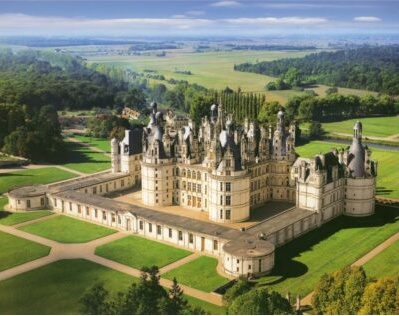 The beautifull castle of Chambord in the French Loire valley
The beautifull castle of Chambord in the French Loire valleywas built early 1500.
The castle needed 2500 serfs and tenants for support.
King Francis-1 paid the castle a one week visit each year.
The immense social inequalities of these days were legitimized by the church.
Religious thesis are beyond discussion, which is very comforting.
As the result of primitive technology, scarcity of energy and resources was experienced at all times.
Land was the only source of energy.
For more power, land had to be conquered.
The strive for power is considered as basic human behaviour.
I think this strive is subordinate to fear.
First the fear for scarcity and poverty and second the fear of being robbed.
Hunting animals defend there territory.
Even well fed cats show this behaviour.
At all times in history people have realized that their lifestyle was not sustainable.
Always more wood was cut, peat digged, coal mined, oil and gas pumped then nature could replenish.
Elites wanted to protect their luxurious lifestyle amidst scarcity which necessitated a large class of poor.
The masses had to be suppressed, their consumption and wages limited.
However, starting 1700 this situation changed in Europe.
Coal, available as the result of improved mining techniques, supplied power to all people.
Coal energy is independent of land which ended an important income source of the noble class,
the cultivation of horse food.
Coal powered machines took over heavy labour.
The serfs and tenants send their children to school.
 At any time however the end of the coal and later the oil supplies were predicted.
At any time however the end of the coal and later the oil supplies were predicted.Thomas Malthus (1766 – 1834) calculated that a linear increase of
agricultural production could never supply enough food
for the exponentially growing population.
In 1968 Paul Ehrlich published ‘The Population Bomb‘.
None of these doom scenario's ever materialized.
Mind-boggling however is the continuing appreciation of these false prophets.
The same is true for the ‘Club of Rome report’ (‘Limits to growth’, 1972).
This reminds us of religious sekts that climb a mountain to wait
for the end of times to descent some days later because the date was mistaken.
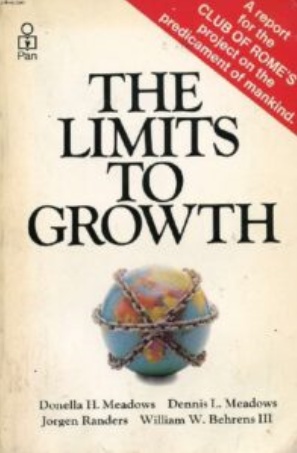 The fear for scarcity and poverty is rooted deeply and the notice that human
The fear for scarcity and poverty is rooted deeply and the notice that humaningenuity so far always came to our rescue is not remembered widely.
During the life of my parents and myself prosperity has increased dramatically.
This has resulted in a new class of high educated and prosperous people.
How would such a class (100hp in the garage) behave?
Simply look at the behaviour of the old noble classes or dictators.
The fear of losing privileges, the fear of scarcity always results in the strive to limit the consumption of others.
The consumer society is vilified by academics!
A new subclass is highly desirable and comforting for the rich.
But how to create this class?
Fossil fuels enabled servants to escape poverty. Replacement does not exist yet.
The rejection of fossil fuel technology therefore is a direct attack on the freedom
and prosperity of the lower- and middle income classes.
That prosperity is the result of industrial manufacturing.
Shell, Exxon and others produce cheap fuels for our machines which allows us
to do more intelligent work than exercise our muscles.
One tractor replaces 2000 agricultural workers.
For every tractor that lacks energy, a big school has to close it's doors to supply hands in the field.
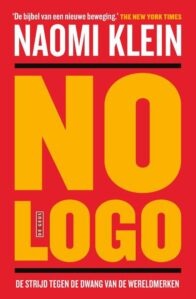 We notice an attack by activists on our industrial production.
We notice an attack by activists on our industrial production.Naomi Klein wrote ‘No Logo’.
High placed UN representatives stated that the threat of a derailed climate
finally offered chances to end capitalism and industrial production.
This amounts to the establishment of a totalitarian government with central planning like the former USSR.
Energy is freedom.
Not surprisingly, the car is the symbol of western freedom.
Elites cannot exist without a much larger subclass of poor.
Such a subclass is created by the limitation of energy.
Windmills and solar panels now are rational choices of the rich,
simply because they are unable to supply sufficient power for everyone.
Besides, immense investments are necessary to insert their power in a demand driven grid.
They cause a poisened landscape but so far even environmentalists do not complain.
Nuclear energy, which potentially may generate enough energy for all and saves the landscape, is demonized.
We now live in the year 2019, not 1284.
But new rat catchers have emerged.
They do not invite us by playing the flute but raise the alarm of climate change.
They do not lead us to a river to be drowned but point the road to a dramatic loss of prosperity.
These sacrifices, they say, are needed for ‘the future of our children’.
Please read this carefully: for their own children only or also for the children of others?
About the last I am not so sure.
Beware not to copy the self interested behaviour of the former noble classes.
Our planet offers space for everyone.
Application of proper technologies supplies energy for everone.
Throughout history, human ingenuity has prevented that doom predictions came true.
Don't be a rat catcher but also beware not to be qualified as a rat yourself.
Postscript (1):
Secularization brought God on earth, now Mother Earth.
However our need for interpretation and protection against uncertainty remained.
The moral compass was passed from the church to environmental organisations.
However instead of offering love and hope the environmentalists exploit human fears as a business model.
The "Mother Earth" concept is false.
Nobody will call the bricks of his home or the steel of his bike "mother".
To live means to exploit the earth, there is no choice.
But to use the spade against your mother generates feelings of deep guilt.
The canonization of Mother Earth has to stop because it causes stagnation, a static lifestyle.
The earth is our nest and also our lumberyard.
Exploitation must be done in an orderly way, but here technology helps.
Postscript (2).
Big changes are hard to imagine.
Most people live a good life, we live in a free country.
History however shows periods of inconceivable suffering caused by false ideologies.
Historians and others still try to understand these barbarian outbreaks.
To conclude I mention the assumptions on which this little study are based.
1. Having read hundreds of articles it seems very unlikely that a trace gas CO2 controls our climate.
Water(vapour), clouds, ocean currents, see floor vulcanoes, deforestation, urbanization and
planetary motions are much more likely factors.
2. The intermittent and low density energy of solar panels and windmills is unable to sustain a modern civilisation.
That raises the question: : "why are we trying this way"?
"To rescue the planet" is the answer we hear from activists.
What does this include? Mountains, brooks, forests, trees, animals, bacteria?
Does it include humans as well? All humans or only a new "green" elite?
Nature has no voice.
Only humans are capable of moral judgements.
Will we see a new clercy preaching austerity in the name of nature?
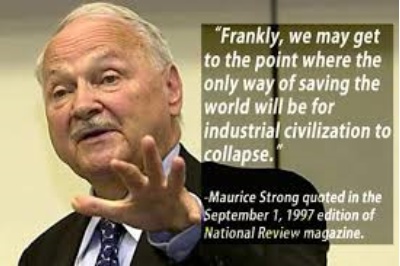 Maurice Strong (1st chairman of UNEP) stated:
Maurice Strong (1st chairman of UNEP) stated:"the only way to save the world is to destroy industrial production".
Which clearly is political activism.
Activists are rebels that want control, just like the old noble classes.
They fear shortage of resources and energy and want to save them for their own social groups.
Also they do not show confidence in innovation.
Instead they promote a static lifestyle and stagnation.
Books:
1."Why nations fail", the origins of power, poverty and prosperity. (Robinson,Acemoglu)
2. "Blue planet in green shackles". (Klaus)
3. "The moral case for fossil fuels". (Epstein)

